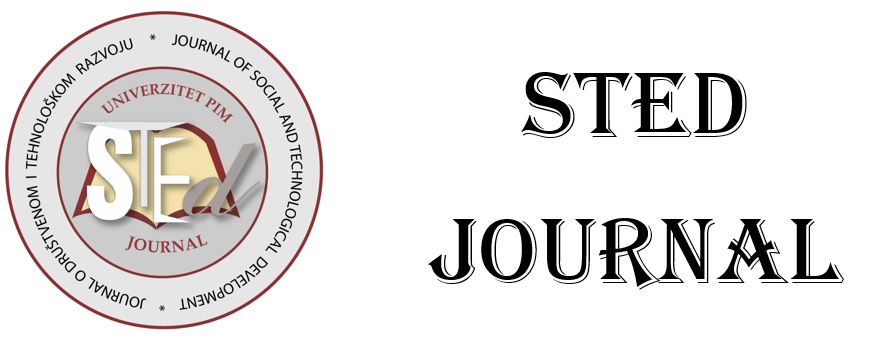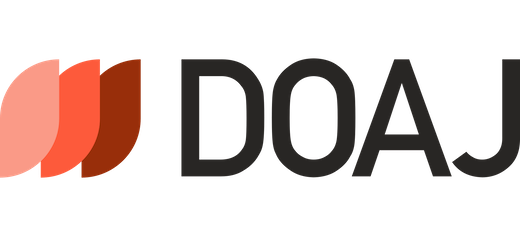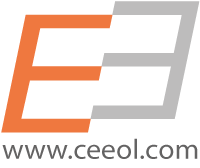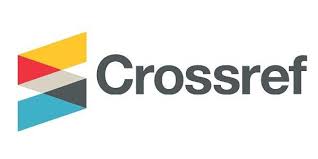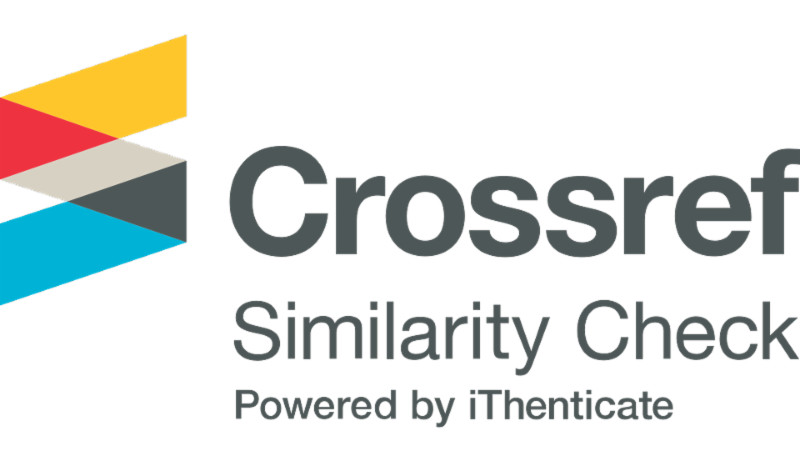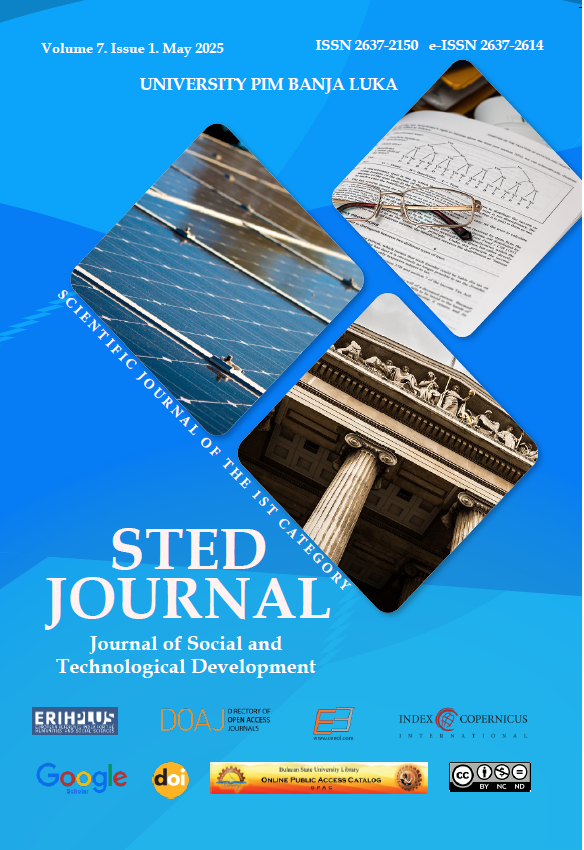
More articles from Volume 7, Issue 1, 2025
RELATIONSHIPS BETWEEN PERSONALITY TRAITS, LIFESTYLES AND ACADEMIC ACHIEVEMENT OF STUDENTS
ATTITUDES AND STEREOTYPES OF HEALTHCARE WORKERS ON THE CAUSES AND ELEMENTS OF SUICIDE
ENHANCING INSURANCE SERVICES IN SERBIA WITH APPLICATION OF THE SERVQUAL MODEL
ATTITUDES AND KNOWLEDGE OF THE INHABITANTS OF SERBIA ABOUT ARTIFICIAL INTELLIGENCE AND ITS TECHNOLOGIES
ANALYSIS OF MARINE FUEL OIL PURIFIER EFFICIENCY, CHEMICAL ELEMENTS AND COMPOUNDS FOUND IN THEM
Article views
ANALYSIS OF MARINE FUEL OIL PURIFIER EFFICIENCY, CHEMICAL ELEMENTS AND COMPOUNDS FOUND IN THEM
 ,
,
Marine engineering, Faculty of Maritime Studies, University of Montenegro , Podgorica , Montenegro
 ,
,
Institute of Marine Biology, University of Montenegro , Podgorica , Montenegro
Faculty of Mechanical Engineering, University of Montenegro , Podgorica , Montenegro
Institute of Marine Biology, University of Montenegro , Podgorica , Montenegro
Editor: Dejan Kojić
Received: 17.02.2025.
Revised: 09.04.2025.
Accepted: 14.04.2025. >>
Published: 30.05.2025.
Volume 7, Issue 1 (2025)
pp. 77-88;
Abstract
Ensuring the proper operation of a ship’s propulsion system necessitates the use of high-quality fuels. Several factors contribute to fuel quality, including the source of origin crude oil, refining methods, blending processes, and the quality of storage and distribution. Marine fuels must adhere to international standards such as ISO standards to be suitable for consumption on ships.
This article presents an analysis of over 6000 fuel samples obtained from two sample points within a purification system, conducted by independent laboratories. While all samples must meet the ISO 8217:2017 Standard for marine residual fuel before bunkering, this analysis focuses on elements with potentially harmful effects on marine engine systems. A comprehensive examination will be conducted, employing an inductive method to draw general conclusions about the current levels of abrasive impurities and other detrimental elements in fuels post-purification.
Specific attention will be given to elements like aluminium, silicon, vanadium, calcium, magnesium, lead, nickel, potassium, sodium, zinc, and phosphorus present in residual fuel oils. These elements, in certain forms or concentrations, pose challenges to marine engines. Testing conducted according to the IP 501 standard, utilizing inductively coupled plasma emission spectrometry, is essential to ensuring smooth engine operation and mitigating damages and associated costs caused by abrasive fines in the fuel oil.
Keywords
Author Contributions
Conceptualization, M.V.; Data curation, M.V. and V.V.; Formal Analysis, M.V. and B.H.; Investigation, M.V.; Methodology, M.V. and Z.I.; Resources, M.V.; Supervision, M.V. and B.H.; Validation, M.V., Z.I. and V.V.; Visualization, M.V., Z.I. and B.H.; Writing – original draft, M.V.; Software, Z.I., B.H. and V.V. All authors have read and agreed to the published version of the manuscript.
References
Citation
Funding Statement
The authors finance the publication fees.
Copyright
All papers are licensed under a Creative Commons Attribution 4.0 International License.
Article metrics
The statements, opinions and data contained in the journal are solely those of the individual authors and contributors and not of the publisher and the editor(s). We stay neutral with regard to jurisdictional claims in published maps and institutional affiliations.
